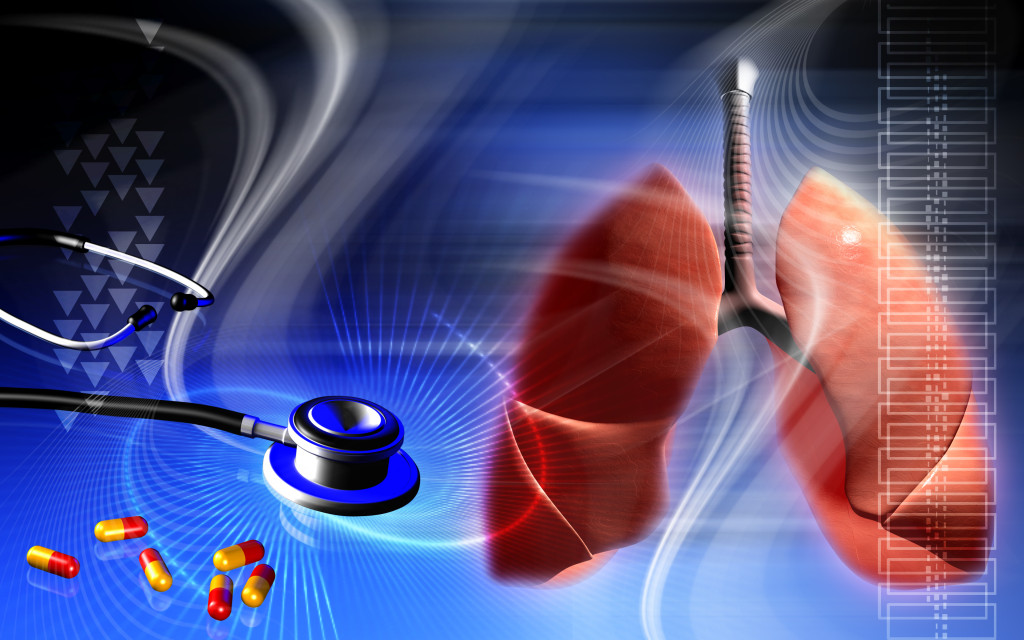
Once in a while, here at the Florida Lung, Asthma and Sleep Specialists, we find out about a medical discovery that is not main stream, but should be. Lung cancer has maintained a long tradition of mysteries, and bit by bit, researchers have been unraveling the secrets of this deadly disease.
One of the biggest mysteries is why doctors cannot get 40 percent of their lung cancer patients to respond to an important therapy. The therapy is directed at stopping tumor growth. So, when a patient’s own system resists the therapeutic drugs, the tumor can continue to grow.
Researchers have long been trying to solve this mystery. Now, scientists at the Georgetown Lombardi Comprehensive Cancer Center and the National Cancer Institute might have done just that! They have made two distinctive discoveries:
1. They know why that intrinsic resistance occurs.
2. They have identified a drug that could potentially reverse the stubborn resistance.
The Problem and the Premise: As they reported in The Journal of Clinical Investigation, they found that “over-expression of the growth protein Cripto-1 makes lung cancer cells resistant to the drug erlotinib (Tarceva®).” In simple terms, the tumor-blocking drug was resisted and rendered ineffective because of too much Cripto-1 in the patient’s system.
The Study: They proved their premise with experiments in cell lines and in animals. The scientists demonstrated that blocking Cripto-1 signaling “transduction restored sensitivity to the drug, one of a number of EGFR inhibitors used in non-small cell lung carcinoma and other cancers.”
To put it simply, the tumor-blocking drug became effective when the Cripto-1 protein was blocked.
The Hero Drug: The drug which will block the over-expression of Cripto-1 is called a Src inhibitor.
The Discontinuation: Unfortunately, the specific drug used in the research study is no longer available. The U.S. Food and Drug Administration has, however, approved at least one similar Src inhibitor, which is also used in treating myelogenous leukemia.
The study’s senior investigator, Giuseppe Giaccone, MD, PhD, associate director for clinical research at Georgetown Lombardi, stated “This is a welcome finding because Cripto-1 belongs to a family of proteins that can be targeted by drugs that have already been developed,”
What Comes Next: Georgetown Lombardi will next stage a clinical trial. They need to see if they can duplicate the good lab results in actual patients.
The Procedure: The drug trial will test the benefits of a combination of erlotinib and a Src inhibitor (AZD0424) in patients with non-small cell lung cancer. Patients will be chosen for the study only if their cancer cells have a mutation in their EGFR, because these patients are very sensitive to erlotinib.
The Standard: Dr. Giaccone stated the plight of the 40 percent, as mentioned above, “There has been very little investigation when a person never responds to an EGFR inhibitor — most research has been done on acquired resistance that occurs after the drug has shown some benefit.”
For more information on research and other studies in cancer, go to this reliable source.
information on research and other studies in cancer, go to this reliable source.
Dr. Giaccone is cautious and conservative about his team’s discoveries.
He does not want the findings to lead to false hope. This is not perceived as searching for a cure for lung cancer. “Most patients using erlotinib exhibit either intrinsic or acquired resistance, so we frankly don’t cure anyone with the drug, although we can extend lifespan.”
Extending Life: He added, “So if we can understand what is limiting the activity of the drug up front, I believe treatment of patients can be vastly improved.”
The Florida Lung, Asthma and Sleep Specialists praise studies such as these. Such experimental research eventually will lead to the realities of a few more months, weeks, or days for a lung cancer patient to spend with family and friends. A few days can be like a miracle to a family.
Here in Orlando, FLASS is also involved in both research and patient care. Lung cancer is a battle which must be fought on two fronts: the lab, and the patient’s system. Research finds the miracles and patient care makes them happen.
Thank you for reading our blog, and until the next time,The Florida Lung, Asthma & Sleep Specialists wish health, happiness, and hope for you and your loved ones.

